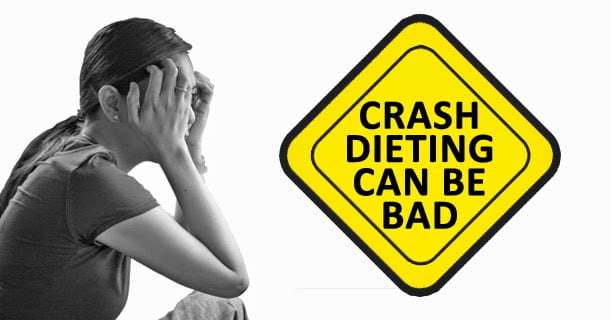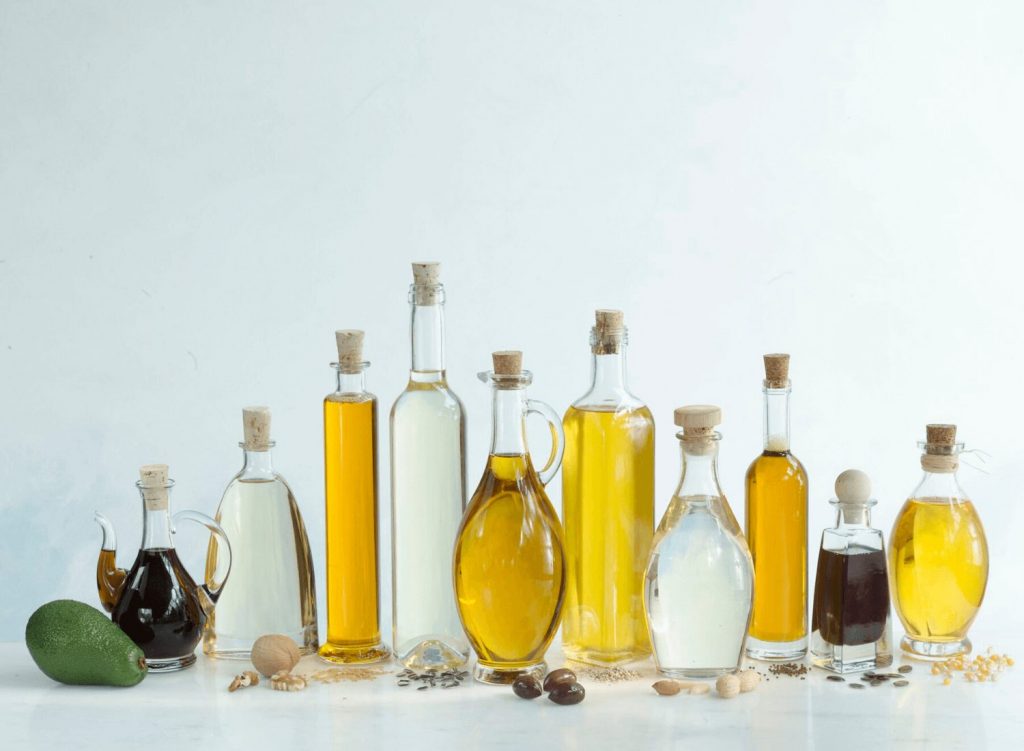India is the third-largest consumer of edible oil in the world and has the third-largest obese population. Both of these have been positively related to hypertension over the years. We must understand oils and fats in their totality before changing their percentage in our diets. As Dr. Bruce Daggy rightly said, “Let’s build wellness rather than treating disease.”
Mrs. Desai, an obese hypertensive, was trying to lose weight for quite some time. She had scoured the internet and had decided to go on a “no added oil diet” or more commonly known as the “oil-free diet”. She took great measures to stop her oil intake altogether, to achieve an unachievable weight loss.
Complications of Oil-Free diet

As she walked into my clinic, I could see the hollow of the cheeks, dark circles under her eyes, evident balding, dryness of skin and a resigned look on her face. She walked slowly, trying to manage her weight while walking, taking support from the surrounding tables and chairs.
Before I helped her into the chair, I saw that she had reduced hardly 2 kgs of weight from the last time I met her, almost 6 months back. Now, I was curious to know what happened in the past half-year.
I waited for her to speak, as I took in her appearance and significant mental apathy. This was not her usual chirpy, happy self.
She started by telling me, “How she was feeling very weak in the past 1 month, with a loss of appetite, increased hair fall, and severe mood swings”. I took a moment and I asked her, “Mrs. Desai, what happened? Have you changed your medicines?”. No, she said. “All my medicines are the same, and the doctor hasn’t added any new medicines as well.”
Tried Crash Diets?

Ok, I thought, so that rules out any new diseases condition, thankfully. But I was still at a loss, why was she like this? So, I tried again, “ What all have you done new in the past 6 months”? I asked.
She smiled weakly before replying, “ I tried to follow a diet with no oil to reduce 10 kgs in 1 month”. I had a flurry of questions coming to my mind- Why? Who prescribed it? When? But I restricted myself, and asked, “ For how long did you follow it?”. 3 months, she replied.
Then I proceeded to confirm my doubts, “ when did you start with having hair fall, mood swings, and weakness?” “About 3 weeks back. I thought hard, it seemed to be the right time to see various vitamin and mineral deficiencies after a severe restriction of oil, especially in a hypertensive. She continued, “ I had lost almost 6 kgs of weight, but it all came back in no time.” Typical yo-yo pattern of weight loss, I realized.
Fats are an essential component of your diet

I gathered it was a good day to explain the importance of fats to her. So I started, Mrs. Desai, fats are an essential component of our diet. They are as essential to us, as are proteins and carbohydrates. In very rare conditions do we need to limit them completely from the diet, and weight loss certainly is not one of those rare conditions. Of course, there are “good” and “bad” fats, though.
Good fats vs Bad Fats

With her curiosity piqued, she asked, “So which are the good fats?”
I started to relax, as her normal logical self was returning. I smiled, “ As you know, Mrs. Desai, everything in moderation is good. For fats, almost 30% of your diet should be composed of fats. Saturated fats like butter, ghee, the cream should be limited but the regular cooking oil should be continued nonetheless. That means you should use approximately 15-25 ml or 3-5 teaspoonful of oil every day to get an ample amount of fat-soluble vitamins and essential fatty acids. The best way is to rotate oils in your cooking- soyabean oil, peanut oil, sunflower oil, and safflower oil”.
Ghee- to consume or not?

She nodded, and asked, “ So, ghee should be stopped completely? I have heard that cow’s ghee is good for health, and our ancestors used to consume it regularly. Why shouldn’t we?”
I know that question has been looming around for a long time now, everyone seems to have a different take on it, forgetting the basic science behind it. “It’s simple, Mrs. Desai. You do not have to completely stop ghee. You can still consume 1tsp daily of ghee (leaving you with 4 tsp daily of oil). But, ghee is high in saturated fats should be restricted further. As for our ancestors, they were used to doing a lot of heavy physical labor, without eating junk and processed foods, were not exposed to all the pollutants and radiations, and never really had a sedentary life.”
Delimna of Omega-3 Fatty Acids

After a moment’s thought, she asked, “So, I should start with healthy fats, which will be omega-3 fatty acids supplements?”. I mulled over the question before replying, her condition did require supplementation, but not all patients need it, and she also did not need them for long periods. It was important for me to explain this point to her, no supplementation should be consumed for an indefinite time. We may be looking at future toxicities and side-effects.
I finally explained, “ Not all people would need supplements of Omega-3 fatty acids, Mrs. Desai. Foods like flaxseeds, walnuts, certain fishes are very good sources of it. Even if you have 2 tsp of flaxseeds per day, you cater to your omega3 fatty acid needs.” I didn’t tell her that omega-3 fatty acids are good fats, as they have anti-inflammatory effects and help in protecting the blood vessels from atherosclerosis. I did want her to over-do omega-3 fatty acid intake.
What about Statins?

“What about statins? I am on statins for my high cholesterol,” she said. There are two aspects to it, I said. First- What should you do when you are taking statins? The answer is simple that, Have a balanced diet, low in saturated fats, exercise regularly and avoid alcohol. Second- What precautions should you take while taking statins? Again, a simple answer, avoid Grapefruit, Seville oranges and other citrus fruits which have furanocoumarins in them. Also, let your doctor know about all the supplements and herbal medicines that you are consuming.
Which oil is the best?

Coming back to cooking oil, she asked,” So which oil should I use for daily cooking and which one do I use for deep frying? That’s an easy one. Again, going back to the chemistry oils, we need to use oils that have a high smoke point for frying. I gave her the following table to explain the different smoke points of oil and hence their different usage.
| Oil | Description | Smoke Point |
| Almond oil( refined) | Used in sauteeing, stir fry. | High |
| Canola oil (refined) | All purpose oil | Med- High |
| Coconut Oil (unrefined) | Good for soups, curries and baked goods | Med |
| Corn Oil | Used in deep frying | High |
| Olive oil (extra virgin) | For cold dishes, salads, dipping bread | Low- Med |
| Sesame Oil ( refined) | For stir frying, searing meats | Med- High |
| Soyabean Oil | High moega-3 fatty acids. Regular cooking | Med |
| Flaxseed Oil | For salads. Not to be heated | Low |
| Safflower Oil | Regular cooking | Low- Med |
| Peanut Oil | Regular cooking. Concerns with allergies and the use of Genetically modified peanuts. | Low- Med |
Empowered with this information, Mrs. Desai, left me with a thought to ponder on-








Excellent explanation of the topic..Very informative.
Thank you.
Very well explained Dr. Mansi…Thanks 🙂